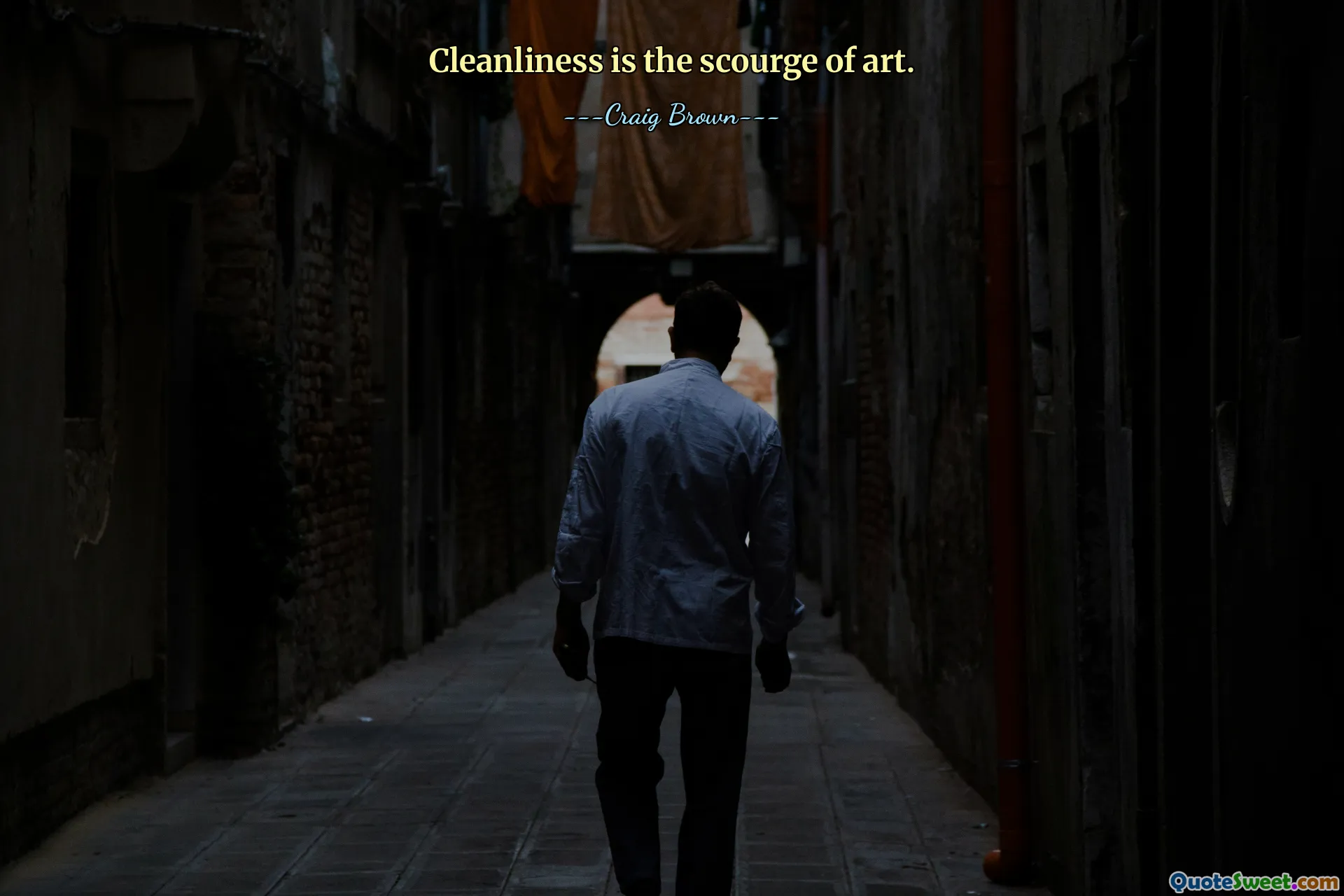
Cleanliness is the scourge of art.
Craig Brown's provocative statement, "Cleanliness is the scourge of art," invites a deep exploration into the nature of creativity and artistic expression. At first glance, cleanliness usually denotes order, purity, and a pleasing aesthetic; however, in the context of art, this quote challenges conventional appreciation by suggesting that excessive cleanliness might stifle creativity. Artistic creation often thrives on imperfection, spontaneity, and emotional rawness, which can be overshadowed by overly sanitized or polished works.
Art is often born from chaos, experimentation, and even disorder. The messiness of the creative process—the smudges, mistakes, and unexpected results—can add texture and authenticity to the end product. When cleanliness becomes the priority, art risks losing its vitality, character, and the imperfections that make it relatable. This perspective also critiques a preference for uniformity and tidiness, suggesting that enforcing such standards in art suppresses its disruptive, edgy, and visionary potential.
Furthermore, this quote may also address a philosophical tension between order and creativity: order can provide a framework, but too much of it can limit the freedom necessary for innovation. In the broader cultural context, it invites viewers and critics of art to reconsider what qualities are valued and to appreciate the raw, unfiltered essence of artistic work rather than only its appearance or technical perfection.
Thus, Brown’s words act as a reminder to embrace imperfection and disorder as integral parts of the artistic experience, cautioning against prioritizing cleanliness at the cost of creative freedom and emotional depth.











